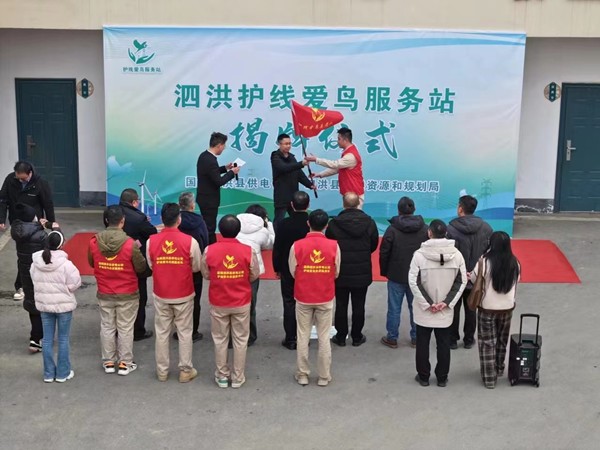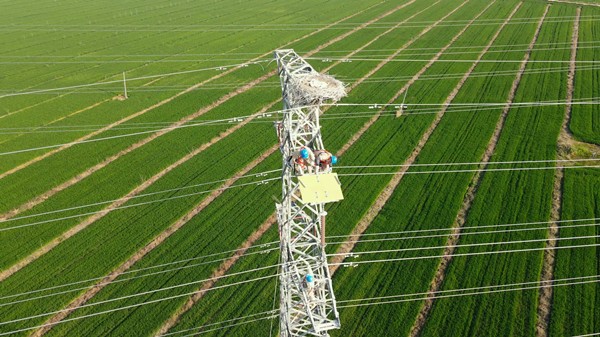Dedicated Jiangsu rescue station protects migratory birds


In Sihong county under the prefecture-level city of Suqian in Jiangsu province, the Hongze Lake Wetland spans for some 50,000 hectares, drawing nearly 1 million migratory birds to breed and overwinter there every year, making it a veritable "birds' paradise".
These include some rare birds such as the Oriental White Storks, which frolic freely in the wetland — one of the country's first national innovation base for practicing the concept that "Green mountains and clear water are equal to mountains of gold and silver".
However, the birds' migration is not always smooth because if they encounter bad weather, insufficient food supply, or injury and illness, some birds may be forced to fall behind or even fall to the ground.
To mark World Wetland Day, which falls on Feb 2 this year, the local branch of the State Grid — a State-owned enterprise and also the world's largest utility enterprise — set up the first migratory bird rescue station in the wetland, together with the establishment of a "Protect Transmission Lines and Love Birds" volunteer team.
"With the rescue station, it is like providing emergency treatment for birds. It can maximize medical intervention for rare birds, alleviate their pain and promote their rehabilitation," said Li Mofeng, captain of volunteer team from Suqian Power Supply Co of the State Grid.
The rescue station is located under an artificial bird nest, with a size of 2 square meters and equipped with various emergency drugs such as iodine, bandages and scissors, as well as sufficient food and water supply.
"Once injured birds are found, our rescue station can play a role similar to that of an emergency ambulance, providing rapid medical treatment and ensuring their safety," Li said.
Li said as the birds grow in number, the Oriental White Stork and other rare birds like to nest on "isolated trees," and the transmission towers in the wetland have become their preferred "settlement".
He added that the birds' nesting materials are diverse, including branches, wires and woven bags, which are prone to fall on high-voltage lines, leading to short circuits. Meanwhile, bird droppings landing on insulated porcelain bottles can cause discharge, leading to line failures. Once short circuits or other failures happen to the lines, it could be fatal to birds.
To solve the problem of "birds competing with the power lines", the State Grid Suqian Power Supply Co has installed more than 300 protective barriers on nesting towers to prevent bird droppings and nesting branches from falling onto the wires and causing line short-circuit failures.
In 2023, the local power supplier identified three suitable habitats in the wetland to build a "standalone villa" for birds with 18-meter-high concrete poles, attracting Oriental White Storks to make nests there.

This is a green development mode of friendly coexistence between rare bird species and power transmission lines, and also a standardized rescue process of "patrol-protection-rescue", Li said.
He said the volunteer team consists of 30 people, who are mainly power line inspectors, monitoring the power supply lines and surrounding environment through manual inspection or by using cloud platforms. Once they find that birds are injured or in danger, they can initiate emergency assistance.
Wang Songzhu, Li's colleague, said they are so glad to start the move, and it was a great thing to see the birds grow in number.
He added that since 2022, three pairs of Oriental White Stork couples have nested on high-voltage transmission towers, giving birth to 11 little white storks.
Wang stressed that they will fully leverage the role of the migratory bird rescue station and work with the local authorities, promoting the job of protecting transmission lines and birds and biodiversity protection.
liuzizheng@chinadaily.com.cn




































